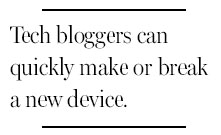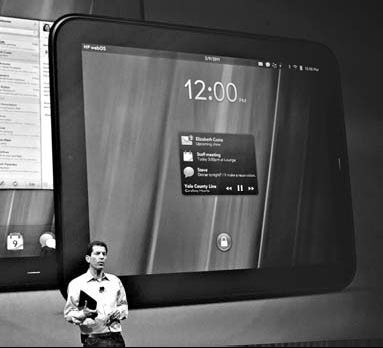Tech gadgets score instantly or die quickly
Updated: 2011-09-18 07:10
By Jenna Wortham and Verne G. Kopytoff(The New York Times)
|
|||||||
|
Hewlett-Packard abandoned its answer to the iPad, the app-starved TouchPad, not long after its introduction. Beck Diefenbach / Reuters |
Seven weeks after it was put on sale, Hewlett-Packard killed its TouchPad tablet, the company's competitor to Apple's iPad. Last year, Microsoft abandoned its Kin mobile phones only 48 days after they went on sale.
In recent years, technology companies have been cutting their losses with increasing speed. Google proudly released Wave, its platform of collaborative work tools, to the general public in May 2010. It canceled Wave 77 days later. Palm announced its tablet-like Foleo, on May 30, 2007. By September 4, the company halted development and the product was never sold.
Pure Digital, maker of the Flip camcorder, had planned to release the Flip-Live on April 13. Cisco, which had acquired Pure Digital for $590million in 2009, shut the entire division on April 12.
These days, big technology companies are starting to resemble Hollywood film studios. Every release needs to be a blockbuster, and the only measure of success is the opening-weekend gross. There is little to no room for the sleeper hit that builds good word of mouth to become a solid performer over time.
When Microsoft released the Xbox 360 in 2005, there were widespread reliability issues and the console faced serious competition from the Nintendo Wii, yet the company stayed the course, and now the Xbox is one of the best-selling video game consoles of all time. That kind of tenacity seems to be in diminishing supply.
Some analysts trace the origin of this blockbuster-or-bust mentality to Apple. Each release of the company's popular iPads and iPhones crosses over into being a mainstream media event. Al Hilwa, an analyst at the research firm IDC, described the accelerated life cycle of high-end hardware as "Darwinian." "There's a level of desperation from anyone whose name is not Apple," said Mr. Hilwa.
The crush of tech bloggers and Twitter-using early adopters who chronicle every bit of news - good and bad - about new phones and tablets raises the stakes around how well new products perform in the marketplace.
"You know pretty quickly, and in a very public way, whether a product is successful or not," said Mr. Hilwa.
Early negative reviews on the Web can be disastrous for the makers of new tablets or phones.
The rapid life cycles of products can play with the affections of consumers, who may rush out to be the first on their block with a new product, only to find that the manufacturer has canceled any future support or development weeks after it went on sale.
Companies kill new products more quickly now because of the higher cost of staying competitive, said Jim McGregor, research director for In-Stat, a market research firm.

In the case of the TouchPad, analysts agree it failed because its operating system, webOS, had few of the apps that made Apple's iPad a runaway hit, he said. Microsoft's Kin had a similar problem.
Mr. McGregor said that Google TV, Google's Internet-connected television accessory, faded into obscurity because content providers declined to make their content available. Even mighty Apple was not always so skilled. Apple suffered a streak of bad luck with new products more than a decade ago and it cut its losses. The company killed the Power Mac G4 Cube, a desktop computer, in 2001 after only 11 months because consumers believed the price was too high.
Two days after announcing it would kill the TouchPad, H.P. started unloading its inventory through an aggressive sale. The steep discount - 80 percent off the original price - succeeded in setting off a buying frenzy that H.P.'s executives had hoped for when they introduced the device.
H.P.'s online store, along with other retailers, quickly ran out of TouchPads after putting them on sale for $100 for the 16G version and $150 for the 32G version. When originally available in July, they were listed at $500 and $600.
"All this clamoring for the TouchPad," H.P.'s customer service arm said in a post on Twitter, "kind of bittersweet."
The New York Times
(China Daily 09/18/2011 page10)
